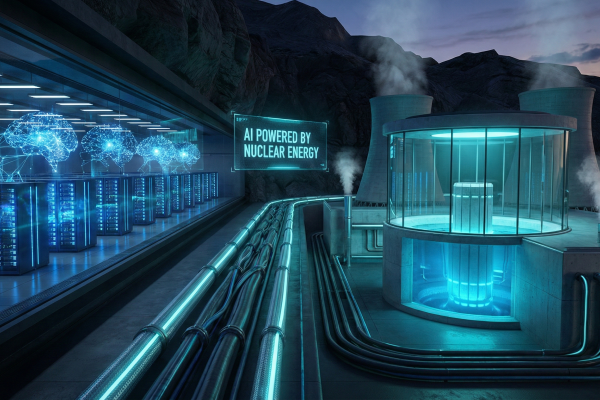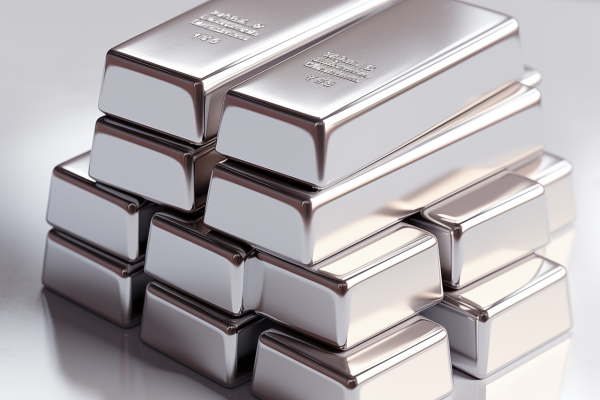January 23rd, 2024 | 06:45 CET
BASF, Manuka Resources, Lynas - Corrections offer long-term opportunities
A "supercycle" is defined as an extended period in which the demand for certain goods exceeds the available supply. In the long term, this leads to a steadily growing supply gap and, thus, to sharply rising prices. In our current situation, where independence from countries like China and Russia is also sought, critical raw materials such as copper, vanadium and rare earth metals will become increasingly scarce over the next few years due to demand resulting from the energy transition. The current correction in these underlying stocks should, therefore, offer a long-term opportunity.
time to read: 4 minutes
|
Author:
Stefan Feulner
ISIN:
BASF SE NA O.N. | DE000BASF111 , Manuka Resources Limited | AU0000090292 , LYNAS CORP. LTD | AU000000LYC6
Table of contents:

"[...] Internally we expect the resource to significantly grow the deeper we mine. [...]" Dennis Karp, Executive Chairman, Manuka Resources
Author
Stefan Feulner
The native Franconian has more than 20 years of stock exchange experience and a broadly diversified network.
He is passionate about analyzing a wide variety of business models and investigating new trends.
Tag cloud
Shares cloud
BASF - Disappointing full year
The chemical giant from Ludwigshafen reported a thoroughly disappointing preliminary result for the full year 2023. Both revenues and EBIT before special items fell short of analyst consensus estimates.
BASF generated sales of around EUR 68.9 billion in the past 12 months, which is below the original estimates of EUR 73 to 76 billion and represents a significant decline compared to the previous year's sales of EUR 87.3 billion. Analysts had expected sales of around EUR 70.6 billion. At EUR 3.8 billion, the operating result before special items also fell short of the forecast of EUR 4 to 4.4 billion and was below the average analyst estimate of EUR 3.9 billion. In 2022, EBIT before special items had still amounted to around EUR 6.9 billion. The decline is primarily attributed to lower margins due to the fall in sales, which could not be offset by a reduction in fixed costs.
Following the figures, the major Swiss bank UBS reiterated its "Buy" rating and price target of EUR 59.00. The bank believes that the chemical group bottomed out in the fourth quarter and that a recovery should take place.
Manuka Resources - Tailwind from politics
In contrast to other critical raw materials such as copper, lithium or nickel, vanadium is still less well known, but the application areas are diverse. Most of it is used in the steel industry, and the metal is also found in various alloys, as a catalyst and in glass and ceramic production. Increasing demand has come from the energy storage sector in recent years. The raw material is used in the production of vanadium redox flow batteries, which have a longer service life and scalable storage capacity compared to lithium-ion batteries. Further advantages are the lower capacity loss, faster response time and the elimination of the risk of overheating.
The two largest producers globally are China, with 40,000 tons per year, followed by Russia, with 10,000 tons per year. Manuka Resources, valued at just EUR 24.62 million on the stock exchange, could move into third place. In addition to the fact that the Australians are the continent's youngest gold producer with the Mt Boppy mine, which is already generating ongoing cash flows, Manuka could become the world's number three producer with its South Taranaki Bight project, an offshore titanium and vanadium deposit located on the coast of New Zealand, with an annual production of 10,000 tons. A total of around 3.2 billion tons are thought to exist on the property. The Company is receiving a tailwind from the recent change of government, which is likely to result in significant funding for mining projects.
According to the Company, Manuka Resources expects an operating profit of USD 480 million per year after the start of production. The capital value is USD 1.8 billion. Following the change of government, the Manuka share price soared, rising from AUD 0.04 to AUD 0.10 within two weeks. After a brief correction, the share is now trading at AUD 0.07. If further signals from the new government regarding the promotion of the project come across the ticker, the high discrepancy between the current market value and the potential value of the project should grow closer together.
Lynas Rare Earths - Dramatic collapse
China holds control over the value chain for rare earth metals. Although Western countries have been able to reduce China's share of production through the Australian mines of Lynas and Iluka Resources and the Mountain Pass mine in California, the Middle Kingdom continues to dominate the processing, smelting, refining and production of rare earth metals and alloys with around 90%.
Founded in 1985, Lynas Corporation operates the Mount Weld mine in Western Australia and a processing plant in Kuantan, Malaysia. The Company is currently valued at a market capitalization of EUR 3.32 billion. Due to the boom in demand caused by the energy transition, the Lynas share price climbed by over 1000% from the Corona low in March 2020 to April 2022. Since then, due to the corrections in the underlying values, the share has lost around 50% of its upward movement and is trading at a prominent support zone of AUD 5.87.
The figures for the past second financial quarter reflect the downward spiral of recent months. Due to a slowdown in construction activity in China and a decline in metal prices, the Australian company fell well short of analysts' estimates.
In the second quarter, Lynas recorded an average selling price of AUD 28.70 per kg for its products, a significant decline compared to the previous year's price of AUD 58.40 per kg. In the three months leading up to December 31, the mining company's sales fell by 51.7% to AUD 112.5 million, compared to AUD 232.7 million in the same period of the previous year. This figure is also below the AUD 117.8 million forecast by Macquarie. For the current third quarter, Lynas is forecasting production of around 1,500 tons, which is higher than the previous estimate of around 900 tons.
BASF reported preliminary annual figures below expectations, but some analysts believe the bottom has been reached. Lynas had to report a slump in profits due to falling demand from China. In contrast, Manuka Resources should receive a tailwind from the new, mining-friendly government.
Conflict of interest
Pursuant to §85 of the German Securities Trading Act (WpHG), we point out that Apaton Finance GmbH as well as partners, authors or employees of Apaton Finance GmbH (hereinafter referred to as "Relevant Persons") may hold shares or other financial instruments of the aforementioned companies in the future or may bet on rising or falling prices and thus a conflict of interest may arise in the future. The Relevant Persons reserve the right to buy or sell shares or other financial instruments of the Company at any time (hereinafter each a "Transaction"). Transactions may, under certain circumstances, influence the respective price of the shares or other financial instruments of the Company.
In addition, Apaton Finance GmbH is active in the context of the preparation and publication of the reporting in paid contractual relationships.
For this reason, there is a concrete conflict of interest.
The above information on existing conflicts of interest applies to all types and forms of publication used by Apaton Finance GmbH for publications on companies.
Risk notice
Apaton Finance GmbH offers editors, agencies and companies the opportunity to publish commentaries, interviews, summaries, news and the like on news.financial. These contents are exclusively for the information of the readers and do not represent any call to action or recommendations, neither explicitly nor implicitly they are to be understood as an assurance of possible price developments. The contents do not replace individual expert investment advice and do not constitute an offer to sell the discussed share(s) or other financial instruments, nor an invitation to buy or sell such.
The content is expressly not a financial analysis, but a journalistic or advertising text. Readers or users who make investment decisions or carry out transactions on the basis of the information provided here do so entirely at their own risk. No contractual relationship is established between Apaton Finance GmbH and its readers or the users of its offers, as our information only refers to the company and not to the investment decision of the reader or user.
The acquisition of financial instruments involves high risks, which can lead to the total loss of the invested capital. The information published by Apaton Finance GmbH and its authors is based on careful research. Nevertheless, no liability is assumed for financial losses or a content-related guarantee for the topicality, correctness, appropriateness and completeness of the content provided here. Please also note our Terms of use.




